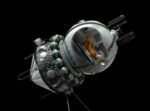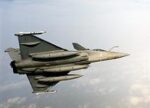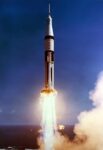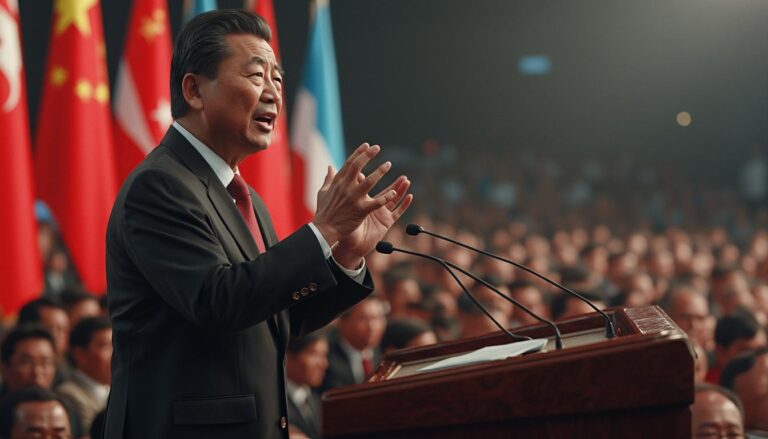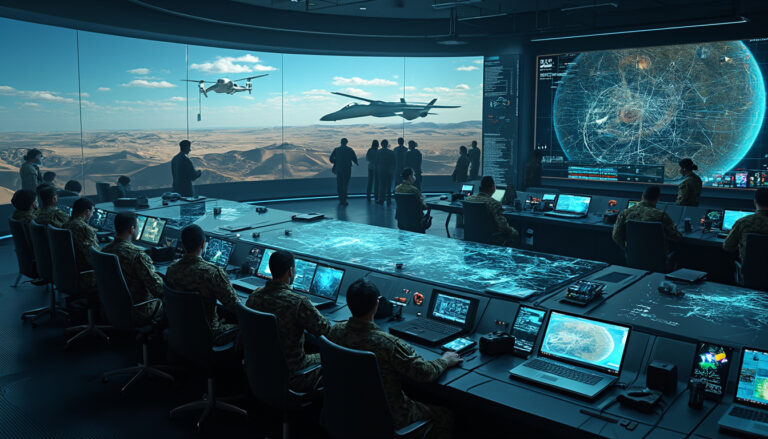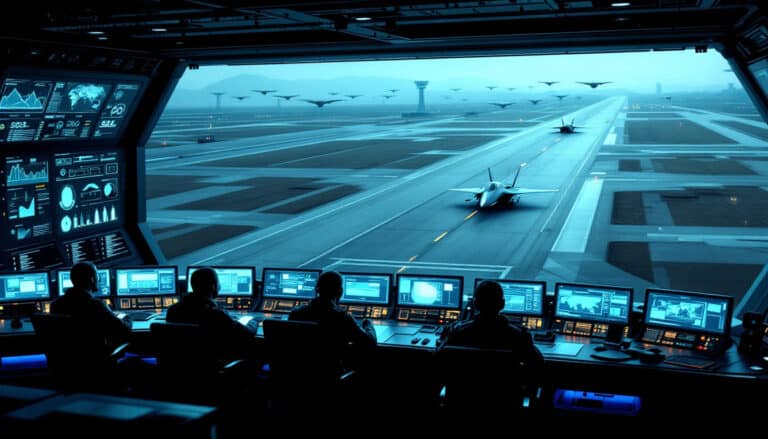At the summit marking NATO’s 75th anniversary in Washington, a historic declaration was made.
It was announced that Ukraine’s path to joining the alliance is now irreversible.
This proclamation strengthens NATO members’ commitment to Ukraine’s security and Euro-Atlantic integration.
This communiqué, developed after the previous year’s summit in Vilnius, highlights the democratic, economic, and security reforms that Ukraine has undertaken. Jens Stoltenberg, NATO’s Secretary General, assured that Ukraine’s membership would not be delayed once the time is right. Despite this commitment, no formal invitation has yet been extended to Ukraine, prompting Kyiv to focus on material support, such as air defense and F-16 fighter jets. Internal discussions led to the inclusion of the terms “irreversible” and “bridge” in the document, reflecting both NATO’s firmness and flexibility in this endeavor.

Table des matières
ToggleWhat is NATO’s commitment to Ukraine’s membership?
At the summit celebrating the 75th anniversary of NATO in Washington, alliance members reaffirmed their unwavering support for Ukraine. The published communiqué emphasizes that the path to Ukraine’s membership in NATO is now considered irreversible. This declaration marks NATO’s strongest commitment to date to integrate Ukraine into the security pact, demonstrating the collective determination of allies to support a country facing major challenges.
The outgoing NATO Secretary General, Jens Stoltenberg, stated before reporters that the alliance would ensure that “when the time comes, Ukraine will join NATO without delay.” He added that “it’s not a question of if, but when,” thus reinforcing the certainty of this future for Ukraine. This position contrasts with the hesitance expressed at the previous summit in Vilnius, Lithuania, where discussions were less engaged.
Despite this strong commitment, the communiqué does not contain a formal invitation for Ukraine’s membership, nor a detailed plan to achieve it. This absence has caused disappointment among Ukraine’s main supporters, who hoped for a more tangible advancement. However, NATO continues to promote Ukraine’s Euro-Atlantic integration, emphasizing the necessary democratic, economic, and security reforms.
To learn more about the internal dynamics of NATO, see the handover of the NATO Secretary General to Mark Rutte.
What progress has Ukraine made towards Euro-Atlantic integration?
Since last year’s summit in Vilnius, Ukraine has undertaken substantial reforms in the areas of democracy, economy, and security. These reforms are essential to meet NATO’s membership criteria and demonstrate the country’s commitment to the alliance’s values.
On the democratic front, Ukraine has strengthened its governmental institutions, improved transparency and the rule of law, and fought against endemic corruption. These efforts have created a more stable and predictable political environment, thereby attracting the attention of Western allies.
Economically, Ukraine has diversified its economy, reduced its energy dependence on Russia, and encouraged foreign investments. Integration with European markets offers new opportunities for growth and sustainable development.
In terms of security, Ukraine has enhanced its military capabilities, modernized its army, and improved cooperation with NATO armed forces. The alliance’s material support, including air defense systems and F-16 fighter jets, has played a crucial role in this transformation.
Despite these progressions, challenges remain. Igor Zhovkva, senior advisor to Ukrainian President Volodymyr Zelenskyy, stressed the need for practical decisions regarding military equipment, complementing political decisions. For an in-depth analysis of defense ambitions in the region, see Ireland’s defense ambitions.
What material support has NATO promised to Ukraine?
During the summit, NATO announced a significant package of material support aimed at strengthening Ukraine’s defense. This support includes the provision of advanced air defense systems, F-16 fighter jets, and an expansion of NATO’s role in Ukrainian military assistance.
Additionally, allies have committed to providing Ukraine with at least 43 billion dollars in funding next year, part of which will be allocated to security. This financial aid aims to support Ukraine’s economic and security reforms while ensuring greater autonomy in its defense.
NATO also plans to establish a command in Wiesbaden, Germany, comprising 700 personnel. This new group, requested by Ukraine, will supplement the existing Contact Forum for Ukraine’s defense that is already in place and led by the United States. However, disagreements persist within the alliance regarding how this assistance will be structured in the long term.
For a perspective on the issues related to allies’ military use, see Trump and his allies: the forecasts of military officials on the use of the army.
What are the political implications of this declaration?
NATO’s declaration on Ukraine’s irreversible membership comes amid a tense geopolitical context marked by tensions with Russia. This strong position from the alliance has political repercussions both internally and internationally.
On one hand, NATO’s firm commitment may reinforce the alliance’s position against Russian pressures, particularly by supporting a country located on Russia’s immediate border. This sends a clear message of solidarity and determination to defend member and partner nations.
On the other hand, this commitment comes at a sensitive time, with the upcoming U.S. presidential elections in November where a potential return of Donald Trump could influence relations with NATO. Trump, skeptical of the alliance and support for Ukraine, may question some of the commitments made.
To understand the historical tensions and political influences, read declassified documents revealing the UK’s anger towards Chirac regarding Iraq.
How is NATO managing internal challenges after this summit?
The Washington summit highlighted not only the possibilities for increased support for Ukraine but also internal divergences within NATO regarding the management of this aid. The creation of the command in Wiesbaden illustrates these tensions, with some members wanting a more significant NATO role while others prefer to maintain existing structures.
A major challenge is reconciling the interests of different alliance members, particularly between the United States and European countries. While some member states support a more direct NATO involvement in assistance to Ukraine, others prefer a more moderate approach, focusing on material support rather than institutional integration.
The leadership of Mark Rutte, the former Dutch Prime Minister, brings a new dynamic to NATO. His experience and vision will be crucial in navigating through these challenges and defining the future direction of the alliance. This leadership transition is essential for ensuring a coherent and effective response to current crises.
To examine air security strategies in this context, see how to ensure flight safety through optimal maintenance of aircraft.
What are the impacts of NATO’s position on the international stage?
NATO’s assertion that the path to Ukraine’s membership is irreversible has significant implications on the international stage. This position strengthens the alliance’s resilience against Russia’s aggressive actions while accentuating geopolitical tensions in the region.
By affirming unwavering support for Ukraine, NATO sends a strong message to other nations seeking to join the alliance, showing that NATO is ready to support its partners in critical moments. This could encourage other countries to undertake similar reforms to align with NATO standards.
This declaration also has implications for bilateral relations between NATO members and non-member countries. Alliances and strategic partnerships may be redefined in light of this position, influencing the overall power dynamics.
For an analysis of international relations and military decisions, see the UK’s anger towards Chirac regarding Iraq.
What are the future challenges for NATO and Ukraine?
The future of Ukraine’s membership in NATO remains uncertain despite declared commitments. Several factors will influence this trajectory, including Ukraine’s internal reforms, the regional geopolitical situation, and the stability of relationships within NATO.
Internally, Ukraine will need to continue making progress in its democratic and economic reforms to meet NATO’s membership criteria. This includes combating corruption, strengthening judicial institutions, and stabilizing its economy.
Geopolitically, Russia remains a key player whose actions will significantly influence NATO’s decisions. Any escalation of tensions or military incidents could further complicate Ukraine’s membership prospects.
Within NATO, the change in leadership with the arrival of Mark Rutte will bring new perspectives and potentially new strategies to address these challenges. The alliance’s cohesion will be tested by the need to reconcile different member approaches to the crisis in Ukraine.
For a perspective on military operations management, explore how to ensure flight safety through optimal aircraft maintenance.
What is the international community’s position on this declaration?
NATO’s declaration regarding Ukraine is also being scrutinized by the international community. NATO’s traditional allies, as well as new partners, are responding in various ways to this enhanced commitment.
European Union members generally support NATO’s position, recognizing the importance of a stable and secure Ukraine for regional stability. However, differences remain regarding the methods and pace of the reforms required for potential membership.
In Asia, countries such as China and North Korea are closely monitoring developments, analyzing how this position may influence their own security policies and strategic alliances.
Additionally, international organizations such as the United Nations have called for a peaceful resolution of tensions, warning against the risks of military escalation and emphasizing the importance of dialogue and diplomacy.
To understand the international implications and strategic alliances, see Trump and his allies: the forecasts of military officials.
How is NATO preparing long-term training and support for Ukraine?
In addition to material assistance, NATO is committed to providing ongoing training and logistical support to the Ukrainian army. This cooperation aims to enhance military skills, strategy, and resilience of Ukraine’s armed forces.
Specific training programs are being developed, including joint exercises, advanced training courses, and strategic intelligence exchanges. These initiatives aim to strengthen Ukraine’s ability to defend its territory and actively participate in NATO missions.
Moreover, NATO is working on improving Ukrainian military infrastructures, providing modern equipment, and assisting in establishing effective communication and command systems. This holistic approach is essential to ensure that Ukraine can seamlessly and effectively integrate into NATO structures.
For an overview of maintenance and air security strategies, explore how to ensure flight safety through optimal aircraft maintenance.
What are the economic benefits of Ukraine’s membership in NATO for allies?
Ukraine’s membership in NATO is not limited to security aspects; it also has considerable economic advantages for member countries. A stable and integrated Ukraine contributes to a safer regional environment, thereby fostering trade and foreign investments.
Ukraine’s economic integration would also diversify markets for NATO member businesses, opening new opportunities for technology, manufacturing, and agricultural sectors. This diversification reduces risks associated with excessive dependence on certain markets, thereby enhancing the alliance’s overall economic resilience.
Additionally, Ukraine has abundant natural resources, particularly in the energy and agriculture sectors. Strengthened cooperation with NATO could facilitate access to these resources, stimulating economic growth and encouraging sustainable development.
For an in-depth analysis of defense ambitions and their impact on the economy, see Ireland’s defense ambitions.
How do Ukraine’s internal reforms influence its relations with NATO?
Ukraine’s internal reforms are a determining factor in assessing its potential membership in NATO. These reforms, covering areas such as governance, transparency, and security, are essential to meet the alliance’s strict criteria for stability and international cooperation.
By strengthening its democratic institutions, improving economic transparency, and modernizing its judicial system, Ukraine demonstrates its commitment to NATO’s fundamental values. These efforts are recognized by allies as positive signs of Ukraine’s willingness to fully integrate into the Euro-Atlantic framework.
Furthermore, security reforms, including modernization of the armed forces and improvement of coordination with NATO structures, are essential to ensure effective defense and optimal military cooperation. These initiatives enhance allies’ confidence in Ukraine’s capacity to contribute significantly to collective security.
To understand the importance of reforms in securing flights, see how to ensure flight safety through optimal aircraft maintenance.
What is the reaction of non-NATO countries to this declaration?
NATO’s declaration regarding the irreversibility of the path to Ukraine’s membership has elicited various reactions from non-NATO countries. Some see this position as a strong signal of Western support and a response to Russian aggression, while others express concerns about escalating regional tensions.
Countries like China closely monitor developments, assessing how this position might influence their own relations with NATO and regional alliances. China’s military and economic cooperation with Russia is under scrutiny, especially regarding support for the Russian defense industry, which is labeled a “decisive factor” in the Ukrainian conflict.
Other countries, such as North Korea and Iran, are also mentioned in NATO’s communiqué as military partners of Russia, which could intensify their own strategic analysis and international relations.
For a perspective on international relations and strategic alliances, see the UK’s anger towards Chirac regarding Iraq.
What are the logistical challenges for NATO in supporting Ukraine long-term?
NATO’s long-term support for Ukraine presents several logistical challenges. The alliance must ensure that material and financial assistance is distributed effectively and meets Ukraine’s strategic needs. This includes managing the supply of military equipment, the ongoing training of Ukrainian armed forces, and the maintenance of defense infrastructures.
Coordination among NATO’s different members is essential to avoid duplication and optimize resource use. The establishment of the command in Wiesbaden aims to centralize and improve this coordination, although internal differences regarding its exact role persist.
Furthermore, NATO must anticipate Ukraine’s future needs in terms of defense technology, cybersecurity, and military logistics. Investing in research and development, as well as in supply chains, is crucial for maintaining effective and sustainable support.
For an understanding of logistical challenges and maintenance strategies, explore how to ensure flight safety through optimal aircraft maintenance.
What role does the economy play in Ukraine’s NATO membership?
The economy plays a central role in Ukraine’s NATO membership. A robust economy is fundamental to support the necessary reforms and to ensure the political and social stability of the country. NATO, in collaboration with European institutions, supports Ukraine in its efforts for economic modernization and integration with Euro-Atlantic markets.
Foreign investments, diversification of industries, and reducing energy dependence on Russia are key aspects of this economic dynamic. By strengthening its economy, Ukraine can not only meet NATO’s requirements but also offer a more balanced and mutually beneficial partnership to alliance members.
Additionally, a strong economy enables Ukraine to contribute more effectively to NATO’s collective defense initiatives, investing in military infrastructures and actively participating in the alliance’s missions.
For an analysis of economic and defense ambitions, see Ireland’s defense ambitions.



